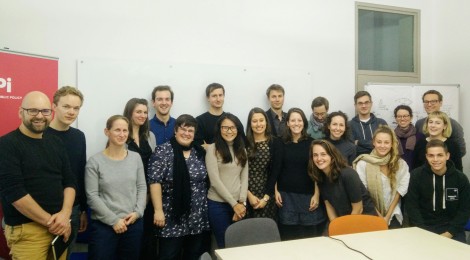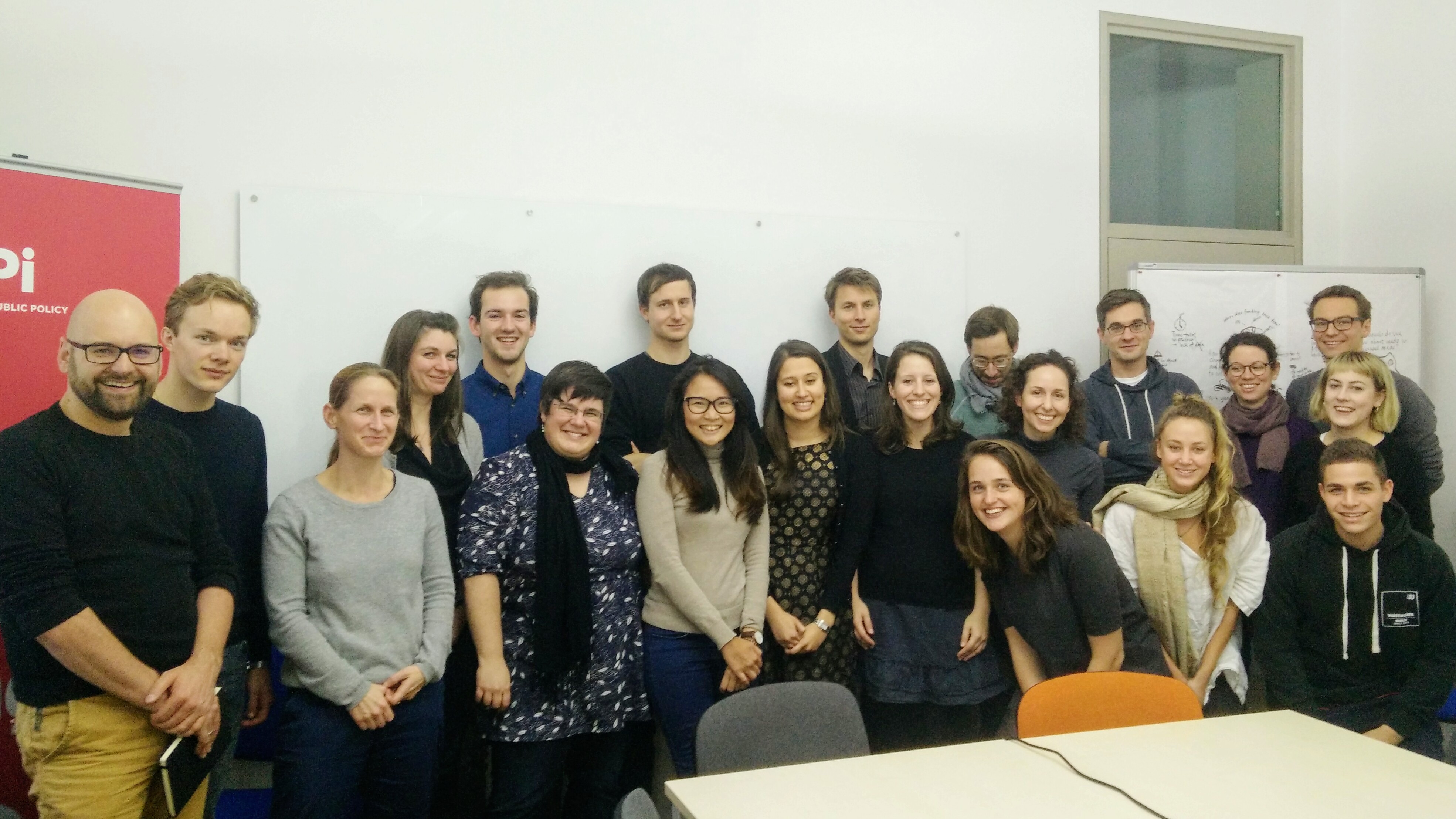“Do you speak German?”, that was the question people addressed to me when they knew that I did an internship as a researcher in a Berlin-based think-tank, Global Public Policy institute (GPPi), assisting a research on the study of cyber security capacity building for the German Ministry of Foreign Affairs. After all, writing a study for the German government must require you to understand German, no? But, I neither speak, write nor read in German. In fact, I never learn German religiously, besides taught myself from Youtube and Duolingo for basic conversations after I got the offer. To date, there is only one German full sentence that I can say fluently: “Ich möchte ein Kebab mit Pommes kaufen, bitte. Dankeschön.”
“So, how did you land an internship there?” they curiously asked further.
As a prelude, I finished my master’s programme at LSE in September, but my graduation ceremony will only take place in December. I thought, “why don’t I look for working experience here while waiting for the graduation?” Working abroad would teach me how to collaborate with a culturally diverse team, and most importantly, I was also considering of venturing out into a new career field: public policy think-tank. However, my previous experience as communications and development consultant spoke little to my research portfolio. Hence, I decided to make the most out of my remaining time in the UK to test the water. I started the applications to think-tanks and NGOs in London since December 2015, but the countless cover letters came to no satisfying result. By the second quarter of 2016, I got two offers from non-for-profit organisations in London, but both positions were unpaid. Since I came to London on scholarship and the last stipend was terminated in August, I had to find the paid internships to support my daily lives.
At the same time, paid internships are also hard to find, especially if you are a non-UK and non-EU citizen because most likely employers would want to invest in the interns that stand a chance to be a permanent employee without the hassle of sponsoring their visa. I then expanded my searching radar from previously limited to LSE Career Hub to basically everywhere. When I read journals or news, and my eyes caught the names of think-tanks, I would google right away and look at their research areas. I sent cold emails to research centres, introducing myself and my research interest, but still, I did not get any good news.
Only when I almost gave up, one day I stumbled upon watching the Al Jazeera program Inside Story on how the media covered the Munich attack. The program invited two guests, and one of them was Philipp Rotmann, Associate Director of the GPPi. I found his answers intriguing and I was curious to know about his workplace. Apparently, the GPPi divides its work into some issue areas, and one of them was my area of interest: data and technology politics. Fortunately, the division was also receiving applications for the internship. So, long story short, I applied and handed in two samples of my writings, I had an interview via Skype, sorted visa matters, and flew to Berlin in early September.

The GPPi has stated clearly that it could only contribute to living cost as much as 250 Euros, but I thought it would make more sense to live in Berlin with way cheaper living cost than London. At least, the stipend could contribute to my monthly accommodation rent (yes, you can still afford 250 Euros for one decent room in Berlin!)
The significant portion of my work was assisting the research on the cyber security capacity building, ranging from critically reviewing literature, interviewing experts, analysing the data, and co-drafting the paper. I also helped some technical and administrative roles for the fellowship program, Transatlantic Digital Debate held in Washington, D.C. and San Francisco. I truly enjoyed my work and the intellectually nurturing environment at the office. Every day, I received streams of news and analysis regarding world affairs not only from my division, but also other divisions (humanitarian, peace and security, rising power, innovation in development, and human rights). As an alumna of international relations, I felt like going back to my old terrain– which I have left for quite sometimes after graduating in 2013. Not only learning from colleagues, but I also could learn from external experts that GPPi invited to give talks at the office. My supervisor also encouraged me to attend discussions and public events outside of the office even though it was during working hours. I also had a very supportive supervisor who trusted me to work on essential tasks; hence enabled me to improve my writing and analytical skills. Socially, the office also had a weekly team lunch, celebrated Thanksgiving together, and we also huddled together for the US election night.

With hindsight, I learn that luck – not only merit – played a significant role in my endeavour to land the internship in Berlin. What were the chances that I accidentally watched Al Jazeera Insider Story; the GPPi opened the internship program of my research interest between September – November; and most importantly the study was written in English hence allowed me to join the pool of the candidates? In a nutshell, I was lucky because I did what I liked at a well-known think-tank at the right time.

However, my realisation of the role of luck is not meant to undermine the importance of hard work. Instead, I argue that chances are sometimes revolving around us and we should open our eyes wider and work harder to make more shots to the available chances. For instance, even if I found the interview on Al Jazeera thought-provoking, but I was not proactive to google the GPPi, I would never go there. Hence, my messages for you is to be proactive and don’t give up. I can’t frame this cliché message in another way, but that’s what it is.
You don’t know what you don’t know, so enlarge your career search from job sites to everywhere. If you stumble upon some names on conferences, books, magazines, newspapers, TV programs, google it – it’s only one click away nowadays. Talk to the people in the industry and look for their advice as well. Send cold emails to introduce yourself – it won’t hurt you. As a matter of fact, one of the internship offers in London came into me because I emailed them to ask about available opportunities.
My short stint in Berlin also taught me hard lessons about working abroad, which was apparently a whole different matter with studying abroad. Although I had a good time professionally, I struggled a bit to get a splendid social life. Despite my fondness of Berlin as the city, I barely knew anyone in the city. At the university, it was easier for you to get friends because everyone started from scratch as well. On the contrary, when you move to a new country alone, most likely your colleagues already have their inner circles – which is surely not a bad thing per se. Nonetheless, it was just more difficult for me initially to find friends for hanging out, especially that I did not speak German. Despite all of that, at least I had a chance to learn the unknown side of myself. So, I know what to expect and anticipate if, in the long run, I launch a career in another country.








